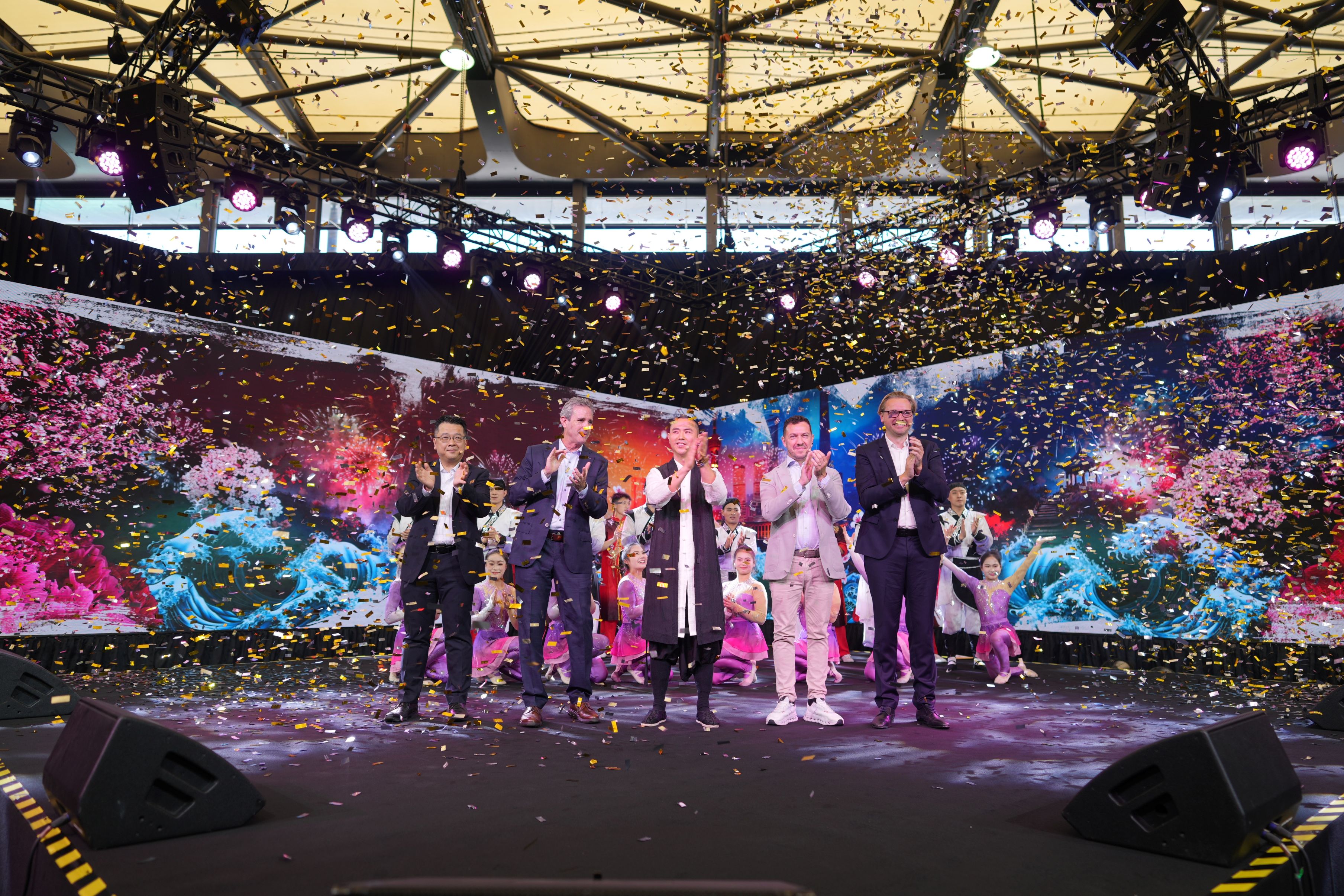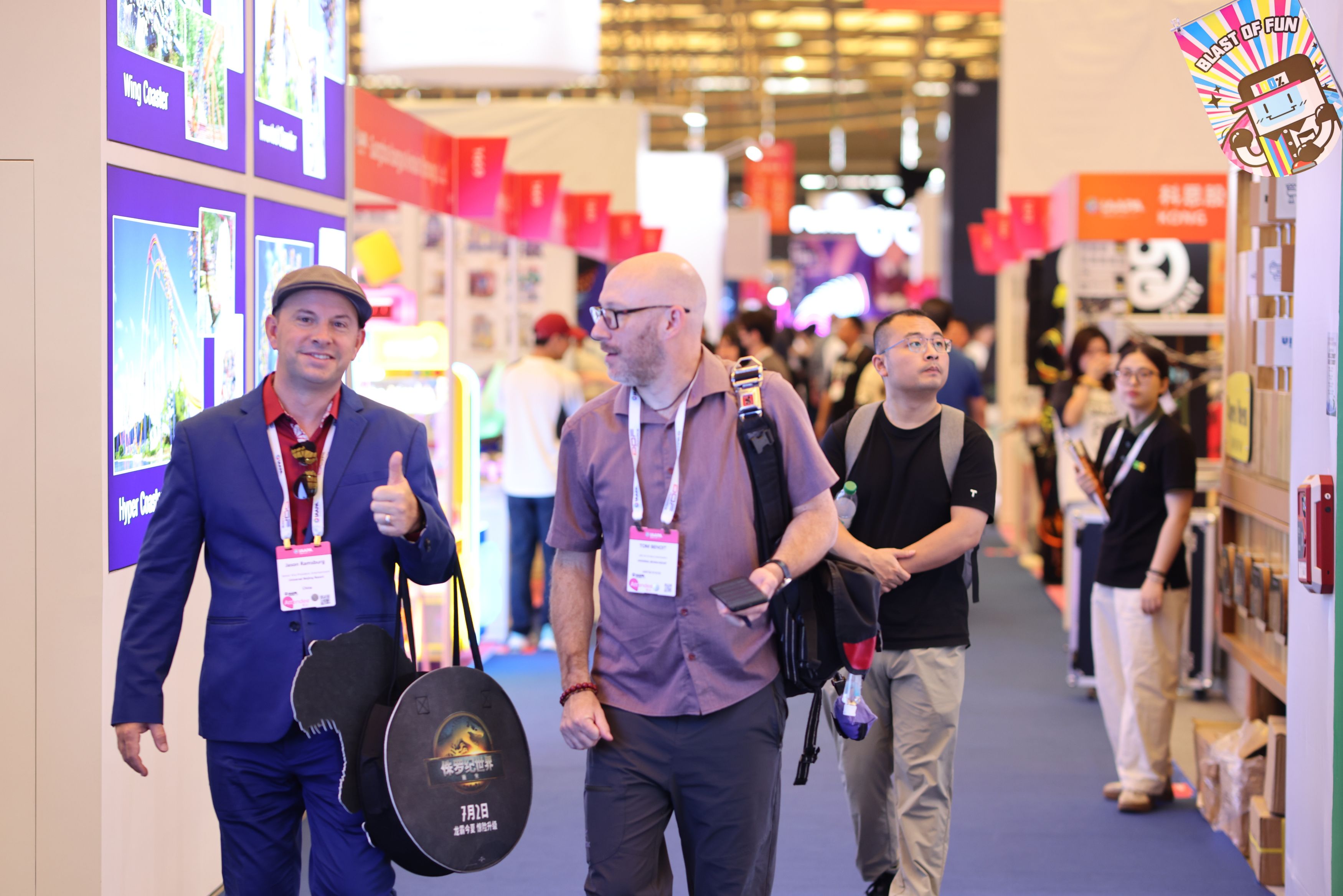 IAAPA Expo Asia Returns to Shanghai, Spotlighting China’s Theme Park Boom
IAAPA Expo Asia Returns to Shanghai, Spotlighting China’s Theme Park Boom(Yicai) July 1 -- The International Association of Amusement Parks and Attractions Expo Asia has returned to the Chinese mainland for the first time in six years, marking its comeback in Shanghai after the Covid-19 pandemic and highlighting growing confidence in China’s entertainment and attractions market.
Running through July 3, the three-day expo features 350 exhibitors and has seen a 40 percent increase in attendance compared with last year, according to IAAPA executives. "The growth reflects the importance of the Chinese market and Shanghai’s strategic role in the region,” said Jakob Wahl, chief executive of the global trade body.
Despite broader economic uncertainties, IAAPA officials remain optimistic about the future of China’s attractions sector. They noted that the fundamental human desire for shared experiences and emotional connections continues to underpin theme park visits.

According to the association’s own research, China is home to more than 4,400 attractions and amusement facilities, with the industry projected to grow at a compound annual rate of 19 percent over the next three years. Meanwhile, per capita spending on attractions across the Asia-Pacific region is expected to rise by an average of 4.6 percent annually.
“Shanghai is a powerhouse in both the Chinese and global attractions markets,” said Jack Chan, executive director at IAAPA Asia Pacific. The city is emerging as a hub for theme parks, with major projects underway, including Legoland Shanghai Resort, the Peppa Pig Outdoor Theme Park, and the Harry Potter Studio Tour.
“Shanghai is an incredibly dynamic city where the future meets the legacy of China,” said Massimiliano Freddi, chairman of the board. As an international metropolis, Shanghai’s growing diversity of attractions increasingly draws in tourists, enhancing both domestic and international appeal while contributing to economic growth, he added.
The organizers emphasized that successful theme parks increasingly differentiate themselves by integrating local cultural elements. Incorporating traditions such as Chinese New Year celebrations or the Singles’ Day shopping festival helps parks forge deeper connections with the home audience.
“Theme parks foster a ‘new togetherness’ by creating shared experiences and emotional bonds,” Wahl noted. Leading operators such as Chimelong Paradise in Guangzhou, Shanghai Disney Resort, and Universal Beijing Resort have embraced this approach by building immersive environments that break down social barriers and strengthen collective engagement.
Editor: Emmi Laine